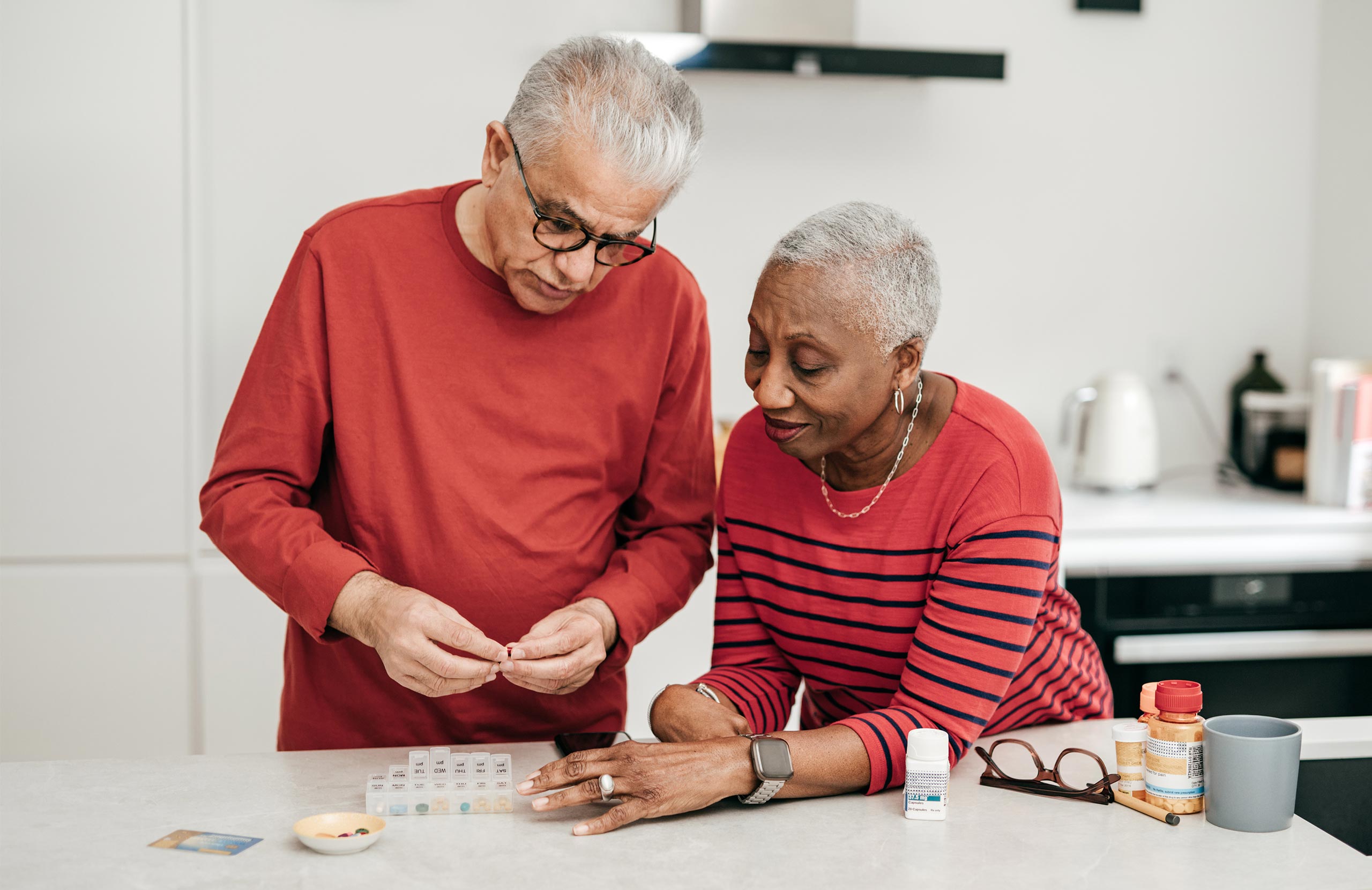Frequently asked questions
There are over 50 different symptoms that people with Parkinson’s can experience, though each person has a different combination of some but not all of them. The nature and severity of symptoms can vary considerably from one individual to another as well as from day to day. In the early stages of the condition, symptoms can be vague and non-specific such as constipation, loss of smell, fatigue, sleep disturbances, unexplained depression, anxiety or muscle pain. The four key motor symptoms are tremor (shaking), muscle rigidity (stiffness), bradykinesia (slowness of movement) and postural instability (balance issues and falls). Generally, you must have at bradykinesia plus another for a diagnosis of Parkinson’s to be considered. It is worth noting that in 30% of cases a resting tremor will not be present. A good place to start building your understanding is by reading some of our resources and information sheets.
There is currently no test or biomarker that can definitively diagnose Parkinson’s. Everyone’s combinations of Parkinson’s symptoms are different making it tricky to diagnose. A GP or neurologists often looks at a clinical history plus motor symptoms, like the stereotypical slow and stiff movements and shaking.
However, current research has identified early warning symptoms like unexplained loss or diminished sense of smell, changes in handwriting, mood and sleep that may occur decades before the movement symptoms arise.
Medical professionals often prescribe dopamine replacement therapies to help get your body and brain the dopamine it needs to control mood and movements.
Medications & treatments infosheet
Parkinson’s Australia is working with researchers and others in the community to help find better treatments and supports for people living with Parkinson’s.
Being proactive about your Parkinson’s will also help you manage any fear or anxiety you may be experiencing due to the diagnosis. It is very important to gain an understanding of which of your symptoms are caused by Parkinson’s. The good news is that there are a wide range of early intervention strategies you can employ to continue to live well with Parkinson’s for a long time. Assemble a care team that will help you plan your wellness journey.
Once you identify which symptoms are most affecting your quality of life, you can talk with your care team about options like exercise, medications and therapies. Remember, your symptoms change over time, but your Parkinson’s care team should be able to guide you along the way.
National advocacy
Parkinson’s Australia develops position statements and policies on matters of national significance. Our policies aim to ensure that Australia provides an environment for the Parkinson’s community to promote the best possible quality of life for people with Parkinson’s. We also work with Parliamentary Friendship Groups – non-partisan forums for Federal Members to meet and interact with community causes.
Connection
It often helps to talk to people that know what you are going through. Connect with support groups via the Support Line on 1800 644 189. You will be directed to the Parkinson’s organisation in your state or territory.
Assemble your team of Parkinson’s specialists carefully, as they will be on your journey with you for a long time. Make sure you get along with them and feel free enough to ask questions about your symptoms and ongoing care. Always include a care partner or support person in appointments with specialists as they make take in things you miss.
Awareness
Finding credible sources of information online can be overwhelming. A few tips to make sure you have the best possible sources you can access for fact on Parkinson’s:
- Get information on websites, from videos and podcasts from Parkinson’s organisations and peak bodies at the state, national and international levels.
- Avoid sites that want to sell you things. If it sounds too good to be true, it probably is.
- Make sure the articles and papers you read are from peer reviewed scientific articles. Google Scholar and other peer reviewed journals are a good place to start. If you need help discerning what to believe, make sure to discuss any suggested treatments or changes to your medication regime with a Parkinson’s Nurse specialist or your GP first.
Learning about the condition and what symptoms your person living with Parkinson’s may experience can be a big support. There needs to be an understanding that Parkinson’s symptoms fluctuate and may cause variability from day to day or even hour to hour and can affect your plans. However, maintaining a social life is very important to the wellbeing of both the person with Parkinson’s and their families. Being flexible and having patience are key to accommodating people living with Parkinson’s.
If you are living with or caring for someone with Parkinson’s, you should also consider your own personal needs and look after yourself… seek counselling if necessary. Register yourself and any young carers on the Carers Gateway and see Carers Australia for more information. Just as there are many support groups for people with Parkinson’s, there are also support groups for carers and young carers.

Young Onset Parkinson’s eXchange
A world-first information portal and resource hub supporting people with young onset Parkinson’s.

